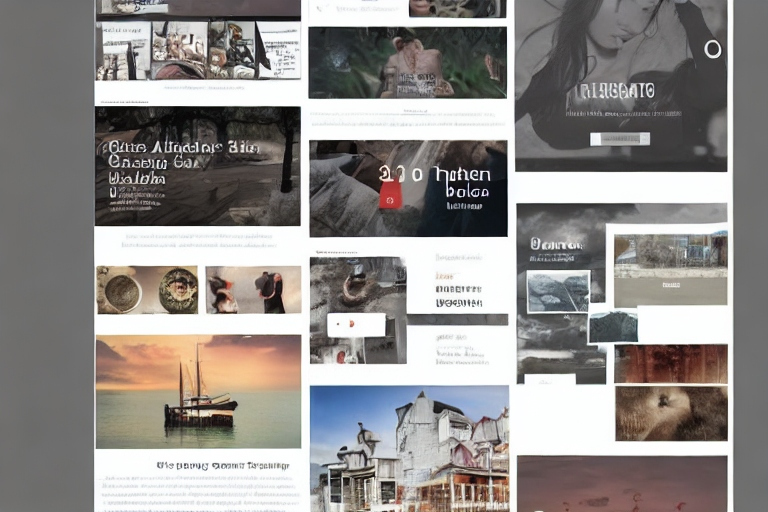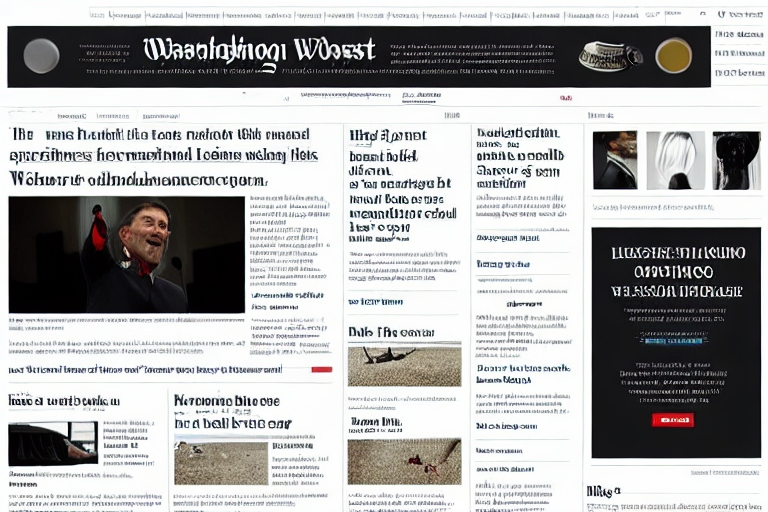Top 7 Examples of Django Websites
May 21, 2023 18:46 · 1287 words · 7 minute read
Django, a high-level web framework written in Python, has gained immense popularity among developers for its efficiency, flexibility, and scalability.
It has been utilized by numerous websites across diverse industries, ranging from social media platforms to e-commerce websites and content management systems. In this article, we will explore some prominent examples of websites that have successfully leveraged Django’s capabilities to deliver exceptional user experiences and achieve their business goals. Below are the top 7 examples of Django websites and applications:

Instagram, the widely popular photo and video sharing social media platform, is built using Django. With millions of active users and a massive amount of user-generated content, Instagram requires a robust and scalable framework to handle its extensive infrastructure. Django’s powerful ORM, authentication mechanisms, and scalability optimizations have played a significant role in Instagram’s success, enabling seamless user interactions, content management, and personalized recommendations.

Pinterest, the visual discovery and bookmarking platform, relies on Django as its web development framework. Django’s modular architecture and clean design have empowered Pinterest to build a visually appealing and user-friendly platform. It handles millions of users, their pins, and various content types efficiently. Django’s features, such as URL routing, template engine, and ORM, have allowed Pinterest to create a dynamic and interactive experience for its users.
Eventbrite

Eventbrite, the leading event management and ticketing platform, utilizes Django to power its web infrastructure. Django’s rapid development capabilities, coupled with its robust features, have enabled Eventbrite to build a comprehensive system for event creation, ticketing, and attendee management. With millions of events hosted on the platform, Django’s scalability and security features have helped Eventbrite handle high traffic volumes and protect sensitive user data.
Disqus

Disqus, a widely used commenting platform, is another notable example of a website built with Django. Django’s ORM and authentication mechanisms have provided the foundation for Disqus to handle user authentication, manage comment data, and seamlessly integrate with various websites. Django’s versatility and extensibility have allowed Disqus to provide a reliable and feature-rich commenting experience across numerous online platforms.
Mozilla

Mozilla, the open-source community behind popular web browsers like Firefox, has leveraged Django for its website development. Django’s flexibility and ease of use have enabled Mozilla to create a user-friendly interface that provides information about Firefox, Mozilla’s projects, and community contributions. Django’s built-in admin interface has streamlined content management for the Mozilla team, making it easier to update and maintain their website.
The Washington Post

The Washington Post, a renowned news publication, has chosen Django to power its website. Django’s robustness and security features have helped The Washington Post handle high volumes of traffic, deliver news content efficiently, and provide a seamless reading experience for its users. Django’s caching mechanisms and performance optimizations have played a crucial role in ensuring fast page load times and responsiveness.
NASA

NASA, the United States’ space agency, relies on Django for its website development needs. Django’s scalability and ease of deployment have enabled NASA to manage and present vast amounts of scientific data, mission updates, and multimedia content to the public. Django’s security features have been crucial in protecting sensitive information and ensuring the integrity of NASA’s online presence.
Why Choose Django Framework
These examples highlight the versatility and power of Django as a web development framework. From social media platforms like Instagram and Pinterest to event management systems like Eventbrite, Django has proven its ability to handle complex requirements, massive user bases, and high traffic volumes.
The success of websites built with Django showcases the framework’s capabilities in delivering exceptional user experiences, scalability, and security. Whether you are building a small business website or a large-scale application, Django’s extensive features, active community, and robust ecosystem make it an excellent choice for powering your web development projects.
When it comes to web application development, selecting the right framework is crucial for a successful and efficient development process. One such framework that has gained significant recognition and popularity among developers is Django.
Django, a high-level web framework written in Python, offers a wide range of benefits and features that make it an excellent choice for building robust and scalable applications. In this article, we will explore the reasons why Django should be your framework of choice when embarking on your application development journey.
Rapid Development
Django is renowned for its ability to facilitate rapid application development. It follows the “Don’t Repeat Yourself” ( DRY) principle, which encourages code reusability and reduces redundancy.
Django provides a plethora of built-in functionalities and ready-to-use components that simplify common web development tasks, such as URL routing, form handling, database management, and user authentication. This feature-rich environment allows developers to focus on core business logic, thereby accelerating the development process and reducing time-to-market.
Scalability and Performance
Scalability is a critical factor for any application. Django is designed to handle high traffic volumes and scale efficiently. It incorporates caching mechanisms, database optimizations, and efficient request handling techniques that ensure optimal performance even under heavy loads. Moreover, Django’s modular architecture enables developers to divide applications into smaller components or “apps,” making it easier to scale and maintain the codebase as the application grows.
Batteries Included Approach
Django follows a “batteries included” philosophy, which means that it provides a comprehensive set of tools, libraries, and features out of the box. These built-in components include an ORM (Object-Relational Mapping) system, an administrative interface, form handling, security features, and internationalization support. By leveraging these pre-built functionalities, developers can significantly reduce the amount of time and effort required to build common web application features, resulting in faster development cycles and increased productivity.
Security
Security is of paramount importance in application development. Django places a strong emphasis on security by implementing various protective measures by default. It provides protection against common security vulnerabilities such as cross-site scripting (XSS), cross-site request forgery (CSRF), and SQL injection. Django’s authentication system, password hashing, and user permission management ensure robust user security and data integrity. By using Django, developers can rest assured that their applications are built on a secure foundation.
Community and Ecosystem
Django benefits from a vibrant and active community of developers who contribute to its continuous improvement and offer support to fellow developers. The Django community provides extensive documentation, tutorials, and resources, making it easy for newcomers to get started and experienced developers to enhance their skills.
Additionally, Django’s ecosystem includes a wide range of third-party packages, libraries, and extensions that extend its capabilities, enabling developers to add functionality to their applications without reinventing the wheel.
Flexibility and Versatility
Django’s flexibility allows developers to tailor applications to specific needs. It does not impose strict conventions, giving developers the freedom to make choices regarding project structure, database backends, templating engines, and deployment options. Django’s modularity allows developers to mix and match components as per project requirements, ensuring a customized and optimized development experience.
Long-term Maintainability
Building maintainable applications is essential for long-term success. Django’s clean and organized codebase, coupled with its emphasis on best practices and design patterns, facilitates code maintainability. Additionally, Django’s extensive testability support, including a built-in testing framework, makes it easier to write comprehensive unit tests and conduct automated testing, ensuring application stability and reliability during maintenance cycles.
Final Thoughts
Django’s combination of rapid development capabilities, scalability, security features, comprehensive tooling, and a thriving community make it an ideal choice for application development. Whether you are building a small-scale web application or a large-scale platform, Django provides a solid foundation that simplifies development, promotes code reusability, and ensures the security and performance of your application. By harnessing the power of Django, developers can streamline their development process, deliver high-quality applications efficiently, and position themselves for long-term success.
P.S. The images you see on this page is AI-generated which can also be done in Python.